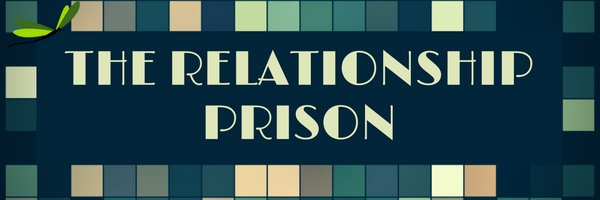
Suppose you wake up in a prison cell, where you discover your only cell mate: the person you got you sentenced to prison, and for a crime you didn’t commit. What’s the fair thing to do? The fair thing is for your cell mate to take responsibility, to say “I realize I got us into this mess, so it’s my job to get us out.” But your cell mate doesn’t see it like that. This person feels the whole thing is your fault.
Okay, so maybe the two of you can at least work together? Come up with a joint plan to get the two of you out of this cell? But your cell mate, it turns out, is a fan of prison. He/She sees no real problem, no pressing need to escape. So if you want to escape, you’re going to have to figure out a plan on your own, even though your stubborn cell mate will likely benefit from your efforts. For that matter, you can’t even be sure your cell mate won’t report you to the guards as soon as you start tunneling your way out with a toothbrush. So what do you do? You do the only thing you can do if you’re truly determined to be free: You take your chances with that toothbrush and start digging.
If you’re stuck in a relationship, you’re stuck. It doesn’t really matter how you got stuck, why you got stuck or whose fault it is. What matters is getting yourself unstuck. Your partner may meet you halfway, but maybe not. You partner is just as likely to resist your attempts to break free, even if these attempts might liberate the two of you.
Getting yourself unstuck in a relationship doesn’t necessarily mean exiting the relationship–although it can mean just that. It’s about taking full responsibility for your predicament, even if you feel like it’s the other person’s fault you wound up like this. Most people would rather sit around the cell with their partner, waiting for “justice,” complaining. “Look at what you’ve done? This is your fault, can’t you see?”
When couples come to counseling, they’re usually hoping the therapist will deliver some kind of verdict. “Jack, you are clearly Bad, whereas Jill is clearly Good. Jack is now required to be Good and give Jill all the things she feels she deserves.” But it never works like that. Whether Jill wants to leave the relationship, or resolve some longstanding issue to improve that relationship, Jill can only rely on Jill. Waiting for Jack to realize the error of his ways makes Jill passive. If Jill is a “victim, she’s a victim of her own passivity.
 About the Author: James Robbins is a licensed professional counselor, published author and co-owner of Dallas Whole Life Counseling. He has over 15 years of experience helping people in various life stages that come from a wide variety of cultural, economic and family backgrounds. Learn more about his background by clicking here.
About the Author: James Robbins is a licensed professional counselor, published author and co-owner of Dallas Whole Life Counseling. He has over 15 years of experience helping people in various life stages that come from a wide variety of cultural, economic and family backgrounds. Learn more about his background by clicking here.


Leave a Reply
You must be logged in to post a comment.